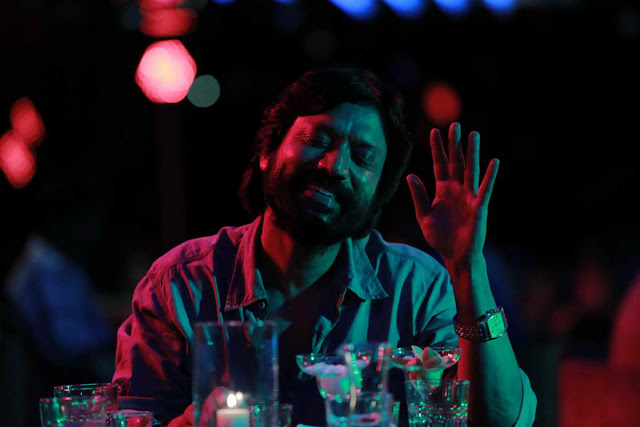'Failure teaches us more than success'
In conversation with SJ Suryah
It wouldn’t be an exaggeration to say Karthik Subbaraj’s Iravi (2016) reintroduced filmmaker-music composer-screenwriter SJ Suryah as an actor. “I am floored by the response I have received for my performance and am forever indebted to Karthik. That subtlety factor did work. I drew a lot of references from Hollywood films on how loud I shouldn’t be. In fact, the reviews I’ve got have been my best so far,” said SJ Suryah.
“While shooting for the film, actor Anjali said, ‘Sir, we totally forgot that you are a director. You have become one of us’. It made me happy because that’s when I realised I was in good hands, doing justice to my character. Also, I knew that the film would be a hit because when I came home after shooting all day, I slept peacefully,” he adds.
As we talk, Suryah, who directed films like Vaali and Khushi in the late 90s, tells us how he wanted to be a hero, but landed up behind the camera. “I actually wanted to be an actor, but accepted the director’s role that came my way thinking that the desire to be in front of the camera would eventually be fulfilled. Every exercise is to fine tune the actor in me; direction is one of them,” he says.
When he did New (2004) and Anbe Aaruyire (2005), he got stereotyped as an actor. But did he manage to do so well in Iravi? “I’m glad Karthik chose me and I think that’s my success as an actor. He believed in my acting skills. When those films flopped, I was forced to take a break. I searched for good scripts, learnt music and kept myself occupied,” he says.
So, how does it feel to be directed by another director? “I am primarily a director, so I know how tough the job is. He is the captain of the ship and has to take care of everything. A director has to be a good actor first; only then can he extract the best from his actors. But I am enjoying the process of being an actor more. Acting is one of the most challenging arts because it demands the artiste to expose himself. When I act, I do that alone. I don’t confuse both. On the sets, I address directors as ‘sir’, irrespective of their age. I even call Selvaraghavan ‘sir’,” he grins.
But he adds that direction is the most difficult. “Nobody makes films and want them to be a flop. I have had my share of failures, but that doesn’t mean I didn’t work hard. I give my best at whatever I do, but don’t think about the result. Sometimes, things go wrong, but that’s fine. Failure teaches us more than success does — like how to cope with pain,” he smiles. Suryah is the kind of person who puts his heart and soul into all he does. That’s why even when he made his debut as a music composer with Isai, it was easy for him. “I pursued music sincerely; I practiced for about 10 hours every day. When the story was about the music, I thought, ‘why not I learn the art?’ I learnt the piano and guitar — thanks to AR Rahman; he brought out the musician in me,” he says.
Speaking about Selvaraghavan’s Nenjam Marapathillai, which also has Regina Cassandra and Nandita Swetha, he says, “Iraivi made me a good actor and Nenjam... will make me a good star. I like Selva’s working style. Everything is fixed and measured. All I have to do is keep my ears open to him. It’s not going to be a typical Selva film. It would be more than that. I play a peculiar character. I am the hero, I am the villain and I am the comedian.” Up next, he has a yet-to-be-titled Tamil Telugu bilingual with Mahesh Babu directed by AR Murugadoss!
(The piece was originally written for The New Indian Express)



Comments
Post a Comment